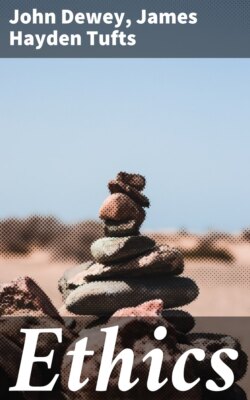Читать книгу Ethics - Джон Дьюи - Страница 22
На сайте Литреса книга снята с продажи.
FOOTNOTES:
Оглавление[3] Wilamowitz-Möllendorf, Aristotle und Athen, II. 93, 47.
[4] History of Greece, III., 55.
[5] The Ancient City, p. 51.
[6] Russian mirs, South Slavonian "joint" families, Corsican clans with their vendettas, and tribes in the Caucasus still have the group interest strong, and the feuds of the mountaineers in some of the border states illustrate family solidarity.
[7] "In all the tribes with whom we are acquainted all the terms coincide without any exception in the recognition of relationships, all of which are dependent on the existence of a classificatory system, the fundamental idea of which is that the women of certain groups marry the men of others. Each tribe has one term applied indiscriminately to the man or woman whom he actually marries and to all whom he might lawfully marry, that is, who belong to the right group: One term to his actual mother and to all the women whom his father might lawfully have married."—Spencer and Gillen, Native Tribes of Central Australia, p. 57.
[8] The fact that primitive man is at once an individual and a member of a group—that he has as it were two personalities or selves, an individual self and a clan-self, or "tribal-self," as Clifford called it—is not merely a psychologist's way of stating things. The Kafir people, according to their most recent student, Mr. Dudley Kidd, have two distinct words to express these two selves. They call one the idhlozi and other the itongo. "The idhlozi is the individual and personal spirit born with each child—something fresh and unique which is never shared with any one else—while the itongo is the ancestral and corporate spirit which is not personal but tribal, or a thing of the clan, the possession of which is obtained not by birth but by certain initiatory rites. The idhlozi is personal and inalienable, for it is wrapped up with the man's personality, and at death it lives near the grave, or goes into the snake or totem of the clan; but the itongo is of the clan, and haunts the living-hut; at death it returns to the tribal amatongo (ancestral spirits). A man's share in this clan-spirit (itongo) is lost when he becomes a Christian, or when he is in any way unfaithful to the interests of the clan, but a man never loses his idhlozi any more than he ever loses his individuality."—Savage Childhood, pp. 14 f.
[9] Hearn, The Aryan Household, p. 212.
[10] MacLennan, Studies in Ancient History, p. 381.
[11] Robertson Smith, Kinship and Marriage in Early Arabia, p. 23.
[12] Cited from the Gwentian Code. Seebohm, The Tribal System in Wales, p. 104.
[13] E.g., certain joint responsibilities of husband and wife.
[14] Seebohm, The Tribal System in Wales, pp. 103 f.
[15] "From the earliest times, religion, as distinct from magic or sorcery, addresses itself to kindred and friendly beings, who may indeed be angry with their people for a time, but are always placable except to the enemies of their worshippers or to renegade members of the community. It is not with a vague fear of unknown powers, but with a loving reverence for known gods who are knit to their worshippers by strong bonds of kinship, that religion in the only true sense of the word begins."—Robertson Smith, Religion of the Semites, p. 54.
[16] Schurtz, Altersklassen und Männerbünde.
[17] Œdipus at Colonus, vv. 186 f.
[18] Dudley Kidd, Savage Childhood, pp. 74 f.
